- Home
- Jack Higgins
The President’s Daughter Page 10
The President’s Daughter Read online
Page 10
“No problem,” Gagini told him. “Let’s say you’ll owe me a favor.”
“My pleasure.”
“Ciao, Charles,” Gagini said and put down the phone.
Ferguson sat by the fire and Kim served him tea and crumpets, and although he enjoyed them, he felt extremely uneasy.
“Damn you, Dillon!” he said softly. “What have you come up with now?”
A little while later, Kim answered the door and Hannah entered with an overnight bag, which she gave him. Her raincoat was dripping and Kim took it from her.
“God, you’re soaking,” Ferguson said. “Come and sit by the fire.”
“I’m fine, Brigadier, but what about Dillon?”
“They dumped him back at Salinas, as I told you. All I know is that he said it’s big and something to do with the President.”
“My God!” she said.
“I don’t think we need to involve the Almighty just yet. I’ll get Kim to provide fresh tea and we’ll just have to possess ourselves in patience.”
At Salinas, Dillon was sitting on the terrace, rain dripping from the roof. He’d just finished a bowl of spaghetti Napoli and half a bottle of some local red wine when a police car drew up. The driver stayed behind the wheel, but a young sergeant got out and came up the steps.
“Excuse me, signor.” He paused, his English obviously poor.
Dillon helped him out in fluent Italian. “My name is Dillon, Sergeant. How can I help?”
The sergeant smiled. “I’ve had orders from Colonel Gagini in Palermo. He has ordered us to deliver you there as soon as possible.”
Another police car pulled up behind with two officers in it, the one in the passenger seat holding a machine pistol.
“A long drive,” Dillon said.
“Duty is duty, signor, and Colonel Gagini insists you are delivered in one piece.” He smiled. “Shall we go?”
“A pleasure,” Sean Dillon said, swallowed his wine, and went down the steps.
It was raining at Farley Field at nine o’clock the following morning when the Lear jet landed. Dillon disembarked and grinned at Lacey. “I wouldn’t bank on a holiday, Flight Lieutenant. You’re going to be very active.”
“Really, sir?” Lacey grinned and turned to Parry. “Ah, well, we find it breaks the monotony.”
Dillon walked toward the Daimler and found only Hannah Bernstein inside. He got in. “The great man too busy, is he?”
“He’s waiting at the office.” She pulled his head down and kissed him on the cheek. “You had me worried, you bastard.”
“Now, then, that’s bad language for a nice Jewish girl.” He lit a cigarette and opened the window. “Let’s blow the passive smoke away.”
She ignored him. “What happened? What was it all about?”
So he told her.
When he was finished, she said, “This is monstrous.”
“Yes, you could say that.”
“And this Judas. He must be mad.”
“Yes,” he said. “You could say that.”
The Brigadier, at his desk in his office at the Ministry of Defense, listened to everything. When Dillon was finished, Ferguson sat there thinking about it, and finally spoke.
“It’s the most fantastic thing I’ve ever heard of. I mean, is this man for real?”
“I questioned Gagini about Hakim,” Dillon said, “and I believe you’ve had his report.”
“Yes, a right old blood bath.”
“Judas and his Maccabees mean business, Brigadier. As I said, your worst nightmare, but real enough.”
“So what do we do?”
“All right,” Dillon said. “Let’s try him out.” He turned to Hannah. “Access the main Secret Intelligence Service computer. Tell it to select Judas Maccabeus and the Maccabees.”
She turned to Ferguson, who nodded. “Do it, Chief Inspector.”
She went out and Ferguson said, “That poor woman with you out there, she must be terrified.”
“She’s quite a lady. She’ll cope,” Dillon said.
“Cope?” Ferguson said savagely. “He’s going to kill her.”
“No, he won’t, because I’ll kill him first,” Sean Dillon said, his face like stone, and Hannah returned.
“Nothing, sir, a total blank. The computer has never heard of Judas Maccabeus and the Maccabees.”
“Good,” Dillon said. “So now we wait and see if he phones me on the special mobile,” and he took it from his pocket and placed it on the desk.
Ferguson said, “Chief Inspector, you’ve heard what Dillon has to say about the worries the Maccabees have about the future of Israel, their fears and so on. As a Jew, what do you think?”
“My grandfather is a rabbi, as you know, sir, my father very orthodox, and yet they give me loving support, even when I must break the laws imposed by my religion because of the demands of my profession. I am very proud to be Jewish, and I support Israel.”
“But?” Ferguson said. “You appear to hesitate.”
“Let me put it this way, sir. During the Second World War, the Nazis did terrible things, the British did not. They behaved as we would expect. There are Arab terrorist groups who butcher women and children. I do not expect such actions from Israelis. However, there are minority fundamentalist groups, the kind who applauded Rabin’s murder, who are as bad as any of them.”
“And you don’t approve?”
“If my grandfather, the rabbi, were here now, he would tell you that it is a fundamental tenet of Jewish law that one cannot secure one’s own survival by deliberately depriving another of life.”
“So what does that tell you about Judas?” Dillon asked.
“That this man is no religious fanatic. A practical nationalist is my guess.”
“Just like the original Judas Maccabeus?”
“Exactly.”
“And you are sure you have no sympathy for him?”
She bridled. “Why? Simply because I’m a Jew?”
Ferguson held up a placating hand. “I had to ask, Hannah, you know that.”
The mobile phone tinkled. Dillon picked it up. “Dillon here.”
“Ah, there you are, old buddy. Request to Number Three Delta computer, source, Chief Inspector Hannah Bernstein, for any information regarding the Maccabees. Response nil.”
“Yes, we are aware of that. Do you want to speak to Brigadier Ferguson?”
“What for? Just tell him to get his arse over to Washington. Time is running out, and tell Hannah Bernstein shalom and that I’m a big admirer.”
The line went dead. Dillon said, “He knew all about the inquiry.”
“That’s incredible,” Ferguson said.
“No, it’s the invisible people.”
“One of his network of Maccabees,” Hannah said.
“Exactly. By the way, he said he was a big admirer of yours.”
“The cheek of it. I’ve never even met him.”
“How do you know? How do I know? Interesting point. The fellas who kidnapped me, the others at the castle, all showed their faces, and why?”
“Because they’re just foot soldiers,” Hannah said.
“Exactly, but Judas wore a hood. Now put your fine police mind to that, Chief Inspector.”
“It’s obvious,” she said. “He has a face that could be recognized.”
“What you’re saying is he’s a somebody.”
Ferguson cut in. “Never mind any of this. What we’ve established is that he’s telling the truth. We’ve just put a question to our most powerful intelligence information computer and he has instant access. In other words, he’s cut our legs off.”
“So what do we do?” Dillon asked.
“Go to Washington and see the President, but first, I’m going to phone Blake Johnson. As for you, Chief Inspector, make sure the Lear is standing by at Farley Field.”
Blake Johnson was forty-eight, a tall and handsome man with jet-black hair who looked years younger than he was. A Marine at nineteen, he’d come o
ut of Vietnam with a Silver Star, two Purple Hearts, and a Vietnamese Cross of Valor. His law degree at Georgia State had taken him into the FBI.
One day in June three years earlier, he had been shadowing Senator Jake Cazalet because of death threats received from certain right-wing fascist groups. The police escort had lost the Senator’s limousine, but Blake Johnson, carving his way through heavy evening traffic, had arrived just as an attack was taking place. He had shot both men involved, had taken a bullet in his left thigh.
It was the start of an enduring relationship with Jake Cazalet and had brought him to his present appointment as Director of the General Affairs Department at the White House.
This was supposed to be an outfit responsible for various administration matters and was known, because it was downstairs, as the Basement. In fact, to those in the know, it was the President’s private investigative squad and one of the most closely guarded secrets of the administration. It was totally separate from the CIA, the FBI, the Secret Service. In fact, the whispers about it were so faint that few people believed it existed. Cazalet had inherited it, and had taken advantage of the retirement of the previous incumbent to offer the job to Blake Johnson.
Ferguson used his direct Codex Four line to the Basement office, and Johnson, at his desk, answered at once.
“Say who you are.”
“Charles Ferguson, you bugger.”
“Charles, how goes it?”
“Bad, I’m afraid. I’ve got very serious trouble for you and the President, and I mean serious. I know it’s strange, but no communication with the Prime Minister, please.”
“That bad?”
“I’m afraid so. I’ll leave in an hour with Dillon and Chief Inspector Bernstein. Dillon’s been up to his neck in this thing. We must see the President at the White House the moment we get in.”
“Not possible. He’s gone down to his own house for a couple of days on the beach at Nantucket. Time to reflect.”
“This is life and death, Blake.”
There was a pause. “I see.”
Ferguson took a deep breath. “You’re his friend, Blake. Tell him it refers to the safety of… one who was lost but now is found.”
“Jesus, Charles, what is this, a parlor game?”
“I can’t say more, not now. Just tell him. He’ll know what I mean. So will Teddy Grant. You’ve got to trust me on this, Blake – this is as important as it comes.”
And Johnson was all efficiency now. “Okay. Don’t come into Washington International. Make it Andrews Air Force Base. I’ll tell them to expect you. They’ll arrange a helicopter to drop you on the beach at Nantucket as they do for the President.”
Ferguson said, “No CIA, Blake, no security services of any description. Just come yourself.”
“I’ll take your word for it, Charles. Okay, I’ll go ahead and prepare the President. I’ll see you there,” and he put down the phone.
Ferguson said, “Right, let’s get moving. No time to waste on this one,” and he led the way out.
On the beach at the old house near Nantucket, the President walked, tracked by two Secret Service men and his dog, Murchison, a black flatcoat retriever. The wind was blowing, the surf tumbling in, and it was good to be alive and away from Washington. He called the nearest Secret Service man over, an enormous black ex-Marine called Clancey Smith, who had served in the Gulf.
“Light me a cigarette, Clancey,” the President said. “Can’t manage in this wind.”
Clancey took two Marlboros from his pack, lit them inside his storm coat, and passed one to the President.
Cazalet laughed. “Didn’t Paul Henreid do that for Bette Davis in Now Voyager?”
“Must have been before my time, Mr. President.”
At that moment, there was a cry and they turned and saw Teddy Grant running toward them. Murchison bounded forward to meet him and they arrived together, Teddy breathless.
“For God’s sake, Teddy, what is it?” Cazalet demanded.
Teddy gestured to Clancey, who withdrew, and only then did he deliver the bad news.
There was the usual press of people outside the White House on Pennsylvania Avenue, tourists mostly, taking pictures and hoping for a sign of the good and the great, maybe even the President, but there were no TV cameras.
Mark Gold turned up the collar of his coat against the light rain and smiled at the nearest policeman. “No TV today. They can’t have lost interest in Cazalet that quickly.”
The policeman shrugged. “He ain’t here. Went down to Nantucket for a day or two. If you’d been here earlier, you’d have seen the helicopter.”
“Heh, I’m sorry I missed that.”
Mark Gold turned away through the crowd and walked some distance along Pennsylvania Avenue to where he had left his car. He was a senior computer operator in the Defense Department, a graduate of Columbia University in computer science. He couldn’t remember when he’d last visited a synagogue. His older brother, Simon, had been different, a deeply religious man who’d given up a lucrative job as a broker on the New York Stock Exchange to emigrate to Israel to farm on a kibbutz in the north near the Golan. He had been killed, along with twelve other people, when Hamas terrorists had blanketed the kibbutz with seven rockets.
Gold had gone to Israel, too late for any funeral, but to pay his respects, had stood at the grave of a much-loved brother, filled with a deep rage, so that when Aaron Eitan had accosted him, ostensibly for sympathy, but sounding him out, it was good to have someone to pour out his anger to.
It had ended with him being picked up by car, blindfolded, and delivered to a back street house in Jerusalem. When his blindfold had been removed, there was Judas in his black hood seated at a table.
So, Mark Gold was a Maccabee and proud to serve. It gave his life a sense of purpose, and his ability to access Defense Department computers was more than useful to the organization. He could even hack in to CIA records at Langley.
Before starting the car, he took out the special satellite-linked mobile phone and punched the coded series. Judas answered very quickly.
“It’s Gold. The President’s gone to his house at Nantucket for the weekend. I presume that’s where our friends will go.”
“Did you check the hotel?”
“Yes, reservations confirmed.”
“They’re certain to go there after Nantucket. Dillon, of course, will have performed his task. You can take care of him at the Charlton as we agreed.”
“Consider it done.”
Gold put the phone in his pocket, switched on the engine, and drove away.
When the Lear jet landed at Andrews Air Force Base, the news wasn’t good. The young major who was waiting to greet them saluted formally.
“My respects, General.”
“Brigadier,” Ferguson told him.
“We could have a problem. Nantucket, the whole area, is subject to fog a lot. We usually drop the President on the beach right outside his home by helicopter. That may not be possible today.”
“So where would we go?”
“There’s an air force base nearby. You’ll proceed onwards by limousine. It’s all been taken care of.”
“Then let’s get on with it,” Ferguson said.
Ten minutes later, the three of them were strapping into a helicopter that took off almost instantly.
When Mark Gold went into Sammy’s Bar, it was early evening and the place was almost empty. The black man with dreadlocks at the corner table was Nelson Harker and just now he was reading the Washington Post.
Gold sat down. “Would you like a drink?”
“Not when I’m working.”
Harker looked up. He had an interesting face, a quick, intelligent look to him that Gold found surprising in a professional hit man, and Harker had killed often, sometimes for as little as one thousand dollars. This time, he was getting ten, but with Dillon’s reputation, it seemed merited. He took a photo from his pocket and passed it over.
“Another photo
of Dillon, just to make sure.”
“Heh, I’ve already seen one. So he’s been a big name with the IRA, the kind of shitheads who bomb women and kids. That ain’t no way to be. I spit on them.”
“Well, spit on Dillon at the Charlton Hotel later tonight. I want you there no later than ten.”
“And then?”
“If we don’t see him around, you can take him in his suite. There’s a night elevator in the basement garage to all floors.”
“Sounds good to me. Where’s my money?”
Gold took out an envelope and slipped it across. “Half now, half after.” He stood up. “See you later,” and walked out.
SEVEN
On the beach, the surf roared in as the President walked with Blake Johnson and Teddy Grant. They all wore storm coats against the wind, and Murchison, barking madly, made occasional forays into the water. Clancey Smith trailed them over to the left.
“For God’s sake, Blake, what can it mean?” the President demanded.
“I don’t know, Mr. President. What I do know for certain is that if Charles Ferguson says that this is serious, then you’d better believe it. The very fact that he had Dillon with him speaks for itself.”
“Yes, of course.” The President turned to Teddy. “You were in the hospital last year when I made the London trip and those Protestant activists tried to kill me. Dillon proved his worth that day. A remarkable man.”
“That’s one way of putting it, Mr. President. I’ve looked him up. I mean, whose side is he on? He tried to mortar the British War Cabinet in ninety-one during the Gulf War and damn near succeeded.”
“Yes, well, he’s on our side now.”
It was at that moment that Clancey Smith called, “I’m getting the word, Mr. President. The chopper’s landed and they’re on their way.”
“Thank God,” Jake Cazalet said, and a moment later a black limousine appeared on the beach, speeding toward the President’s house. “This way, gentlemen.” He ran along the beach through clinging strands of mist, Murchison snapping at his heels, and arrived at the house as the helicopter settled.

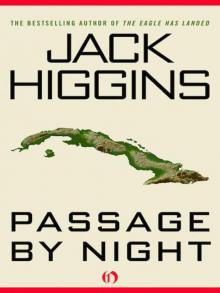 Passage by Night (v5)
Passage by Night (v5)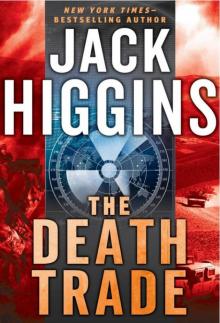 The Death Trade sd-20
The Death Trade sd-20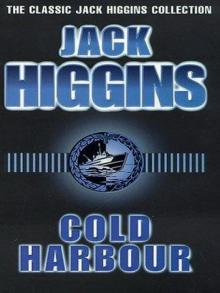 Cold Harbour
Cold Harbour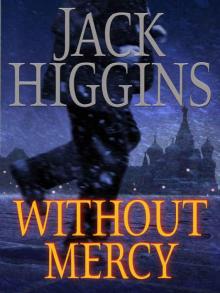 Without Mercy
Without Mercy Solo (Aka the Cretan Lover)(1980)
Solo (Aka the Cretan Lover)(1980) First Strike
First Strike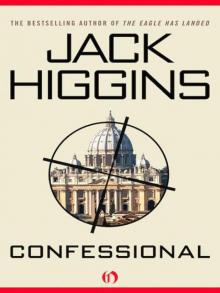 Confessional - Devlin 03 (v5)
Confessional - Devlin 03 (v5)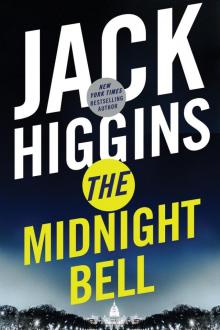 The Midnight Bell
The Midnight Bell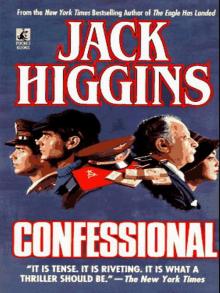 Confessional
Confessional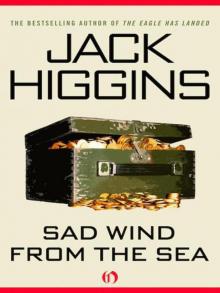 Sad Wind from the Sea (v5)
Sad Wind from the Sea (v5)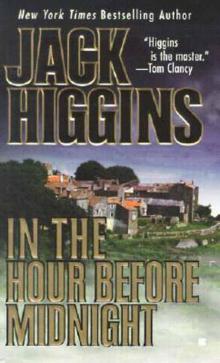 In The Hour Before Midnight aka The Sicilian Heritage
In The Hour Before Midnight aka The Sicilian Heritage Wrath of the Lion
Wrath of the Lion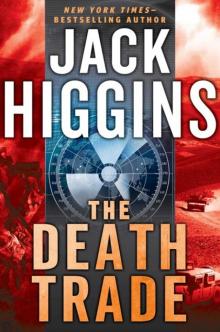 SDillon 20 - The Death Trade
SDillon 20 - The Death Trade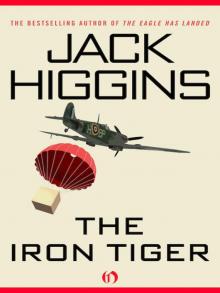 the Iron Tiger (1974)
the Iron Tiger (1974)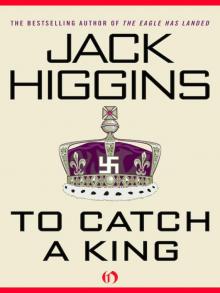 To Catch a King
To Catch a King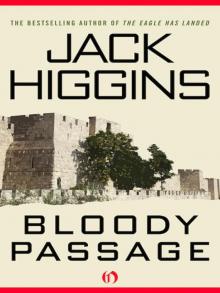 Bloody Passage (1999)
Bloody Passage (1999)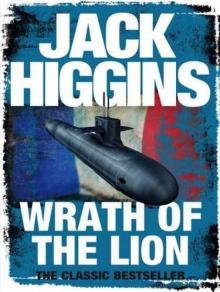 Wrath of the Lion sd-8
Wrath of the Lion sd-8 Sharp Shot
Sharp Shot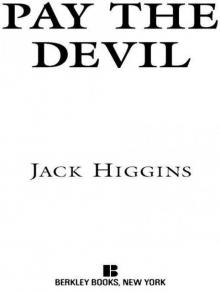 Pay the Devil (v5)
Pay the Devil (v5) A Devil Is Waiting
A Devil Is Waiting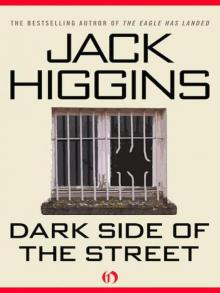 Dark Side of the Street - Simon Vaughn 01 (v5)
Dark Side of the Street - Simon Vaughn 01 (v5)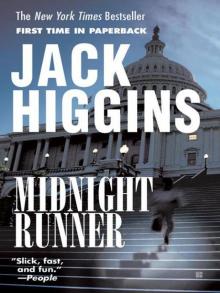 Midnight Runner - Sean Dillon 10
Midnight Runner - Sean Dillon 10 Wrath of God
Wrath of God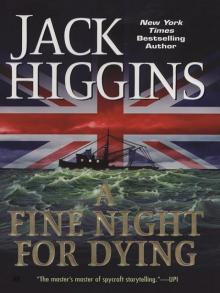 A Fine Night for Dying
A Fine Night for Dying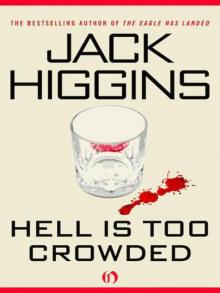 Hell Is Too Crowded v5)
Hell Is Too Crowded v5)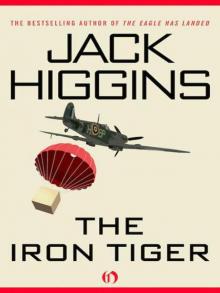 the Iron Tiger (v5)
the Iron Tiger (v5)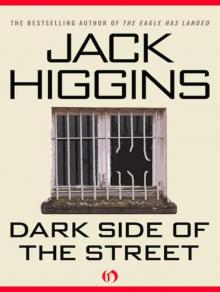 Dark Side of the Street pc-5
Dark Side of the Street pc-5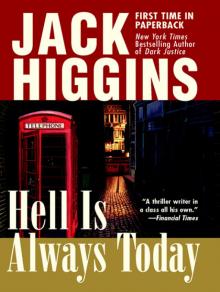 Hell Is Always Today
Hell Is Always Today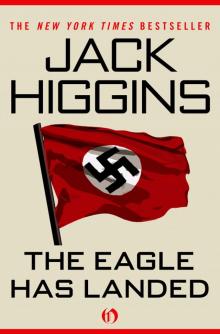 Eagle Has Landed
Eagle Has Landed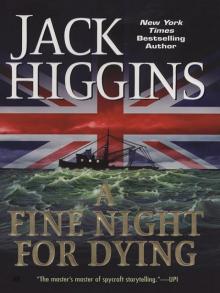 A Fine Night for Dying pc-6
A Fine Night for Dying pc-6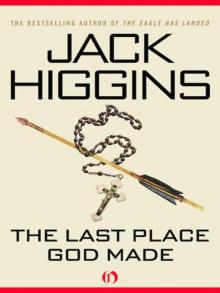 the Last Place God Made (v5)
the Last Place God Made (v5)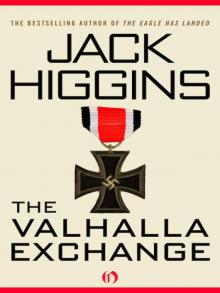 the Valhalla Exchange (1976)
the Valhalla Exchange (1976)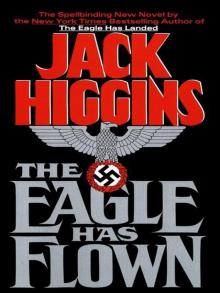 The Eagle Has Flown
The Eagle Has Flown Sure Fire
Sure Fire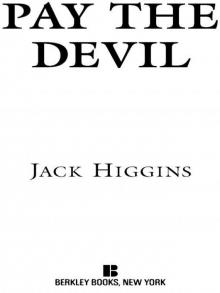 Pay the Devil (1999)
Pay the Devil (1999) Memoirs of a Dance Hall Romeo
Memoirs of a Dance Hall Romeo![a Prayer for the Dying (1974)[1] Read online](http://i1.bookreadfree.com/i1/04/02/a_prayer_for_the_dying_19741_preview.jpg) a Prayer for the Dying (1974)[1]
a Prayer for the Dying (1974)[1]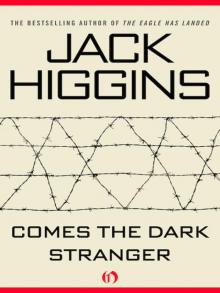 Comes the Dark Stranger
Comes the Dark Stranger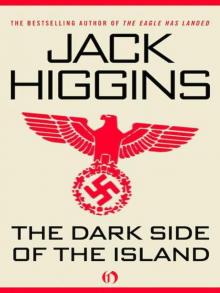 Dark Side Of the Island (v5)
Dark Side Of the Island (v5)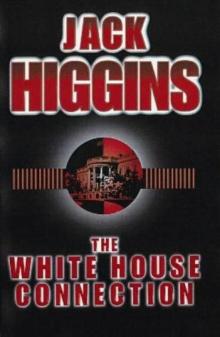 The White House Connection sd-7
The White House Connection sd-7 Dillinger (v5)
Dillinger (v5) Eye of the Storm
Eye of the Storm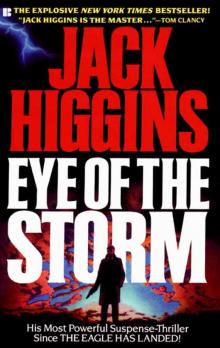 Eye Of The Storm aka Midnight Man
Eye Of The Storm aka Midnight Man A Darker Place
A Darker Place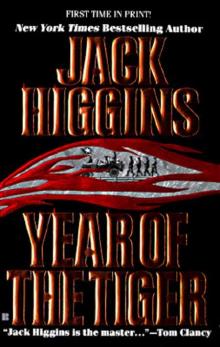 Year Of The Tiger
Year Of The Tiger Death Run
Death Run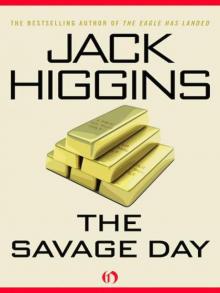 the Savage Day - Simon Vaughn 02 (v5)
the Savage Day - Simon Vaughn 02 (v5)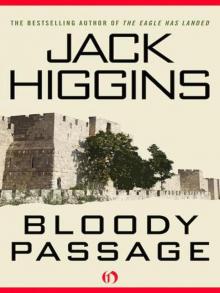 Bloody Passage (v5)
Bloody Passage (v5)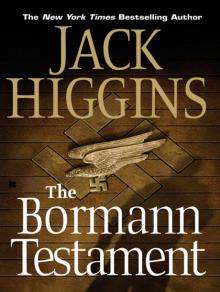 The Bormann Testament
The Bormann Testament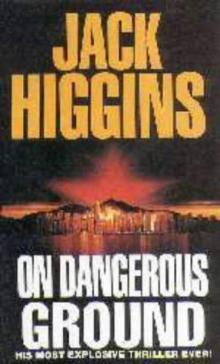 On dangerous ground sd-3
On dangerous ground sd-3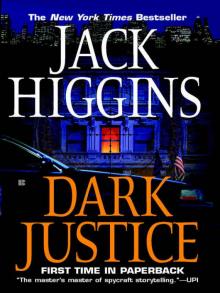 Dark Justice
Dark Justice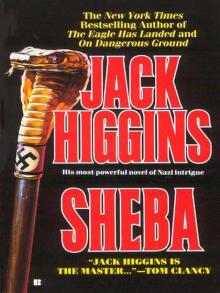 Sheba
Sheba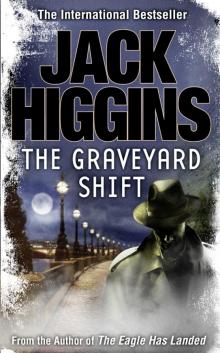 The Graveyard Shift
The Graveyard Shift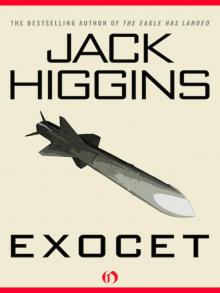 Exocet (1983)
Exocet (1983) The Wolf at the Door
The Wolf at the Door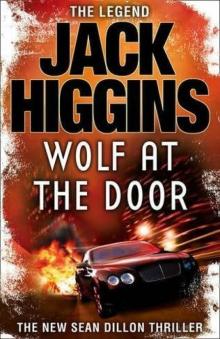 The wolf at the door sd-17
The wolf at the door sd-17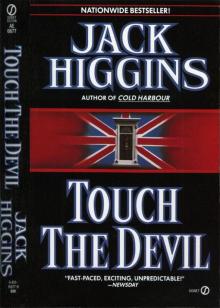 Touch The Devil
Touch The Devil The President’s Daughter
The President’s Daughter A Prayer for the Dying (v5)
A Prayer for the Dying (v5)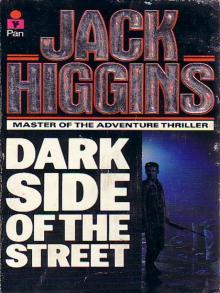 Dark Side Of The Street
Dark Side Of The Street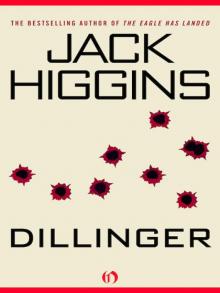 Dillinger (1983)
Dillinger (1983)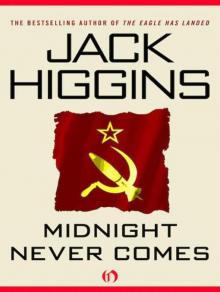 Midnight Never Comes pc-4
Midnight Never Comes pc-4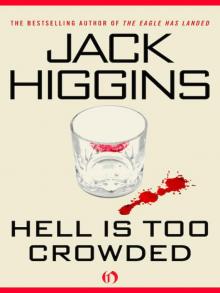 Hell Is Too Crowded (1991)
Hell Is Too Crowded (1991)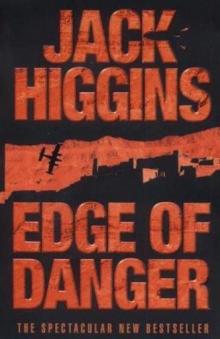 Edge of Danger sd-9
Edge of Danger sd-9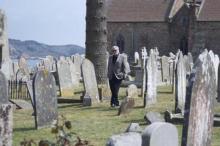 The Thousand Faces of Night (v5)
The Thousand Faces of Night (v5)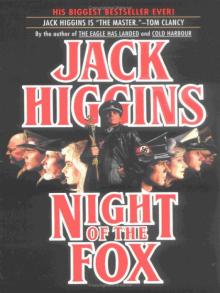 Night Of The Fox
Night Of The Fox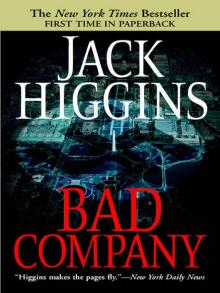 Bad Company
Bad Company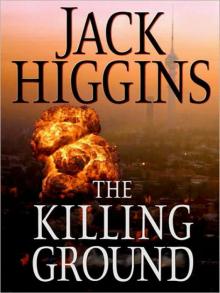 The Killing Ground
The Killing Ground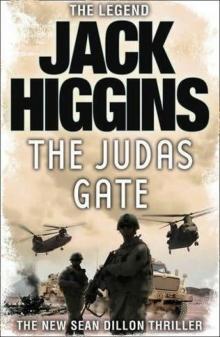 The Judas gate sd-18
The Judas gate sd-18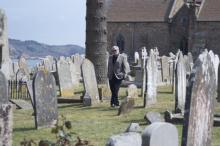 The Thousand Faces of Night (1961)
The Thousand Faces of Night (1961) Solo (Aka the Cretan Lover) (v5)
Solo (Aka the Cretan Lover) (v5)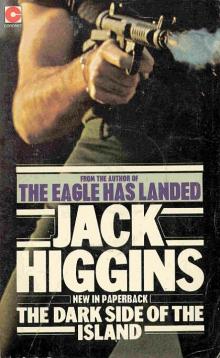 The Dark Side Of The Island
The Dark Side Of The Island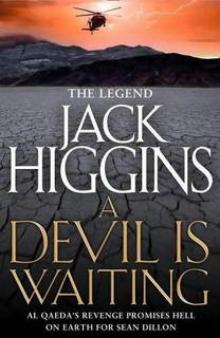 A Devil is vaiting sd-19
A Devil is vaiting sd-19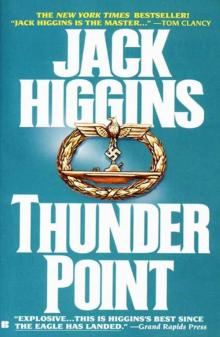 Thunder Point
Thunder Point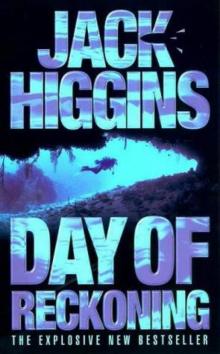 Day of Reckoning sd-8
Day of Reckoning sd-8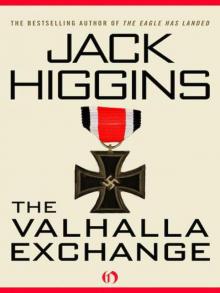 the Valhalla Exchange (v5)
the Valhalla Exchange (v5)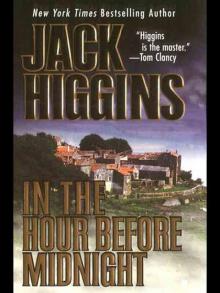 In the Hour Before Midnight
In the Hour Before Midnight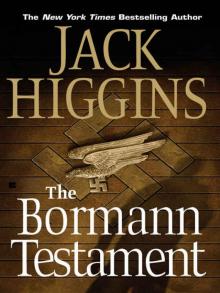 The Bormann Testament (The Testament of Caspar Schultz)
The Bormann Testament (The Testament of Caspar Schultz) The Judas Gate
The Judas Gate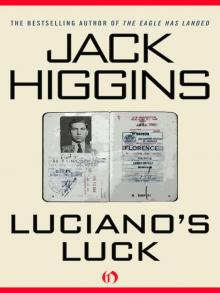 Luciano's Luck
Luciano's Luck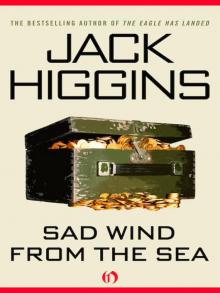 Sad Wind from the Sea (1959)
Sad Wind from the Sea (1959)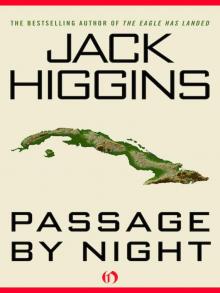 Passage by Night (1987)
Passage by Night (1987)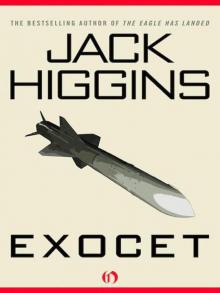 Exocet (v5)
Exocet (v5)